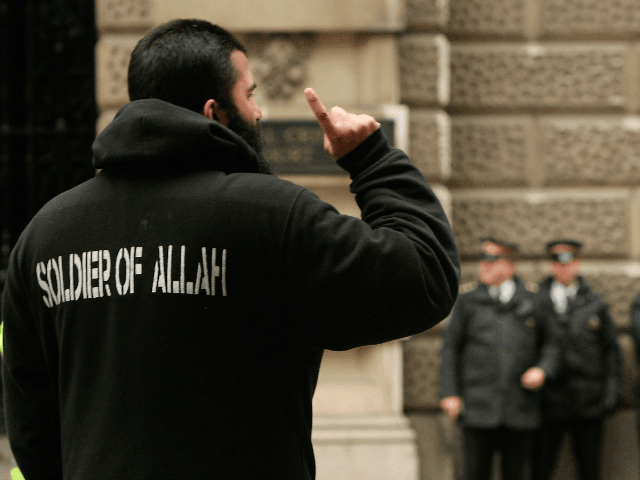The Muslim Council of Britain’s Centre for Media Monitoring (CfMM) has claimed that British media has placed a “disproportionate focus” on Islamic terrorist attacks and that headlines containing the Jihadi war-cry ‘Allahu Akbar’ are misleading as they claim it falsely links terrorism with the Islamic faith.
The report, entitled ‘How The British Media Reports Terrorism’, claimed that between 2015 and 2019, words or phrases identifying terrorists as Muslims are nine times more likely to be used in media reports than phrases identifying far-right or white-supremacist terrorist attacks.
The report also claimed that between October and December of 2018, one-quarter of online British media reports about Islam or Muslims were about terrorism or extremism.
Rizwana Hamid, the director of CfMM and one of the authors of the report, said according to The Times, that “inconsistencies remain, with a disproportionate focus on Muslims.”
She argued that “headlines using religious terms such as ‘Allahu Akbar’ imply that religion is always the motivator, ignoring other factors such as criminal history and mental health issues which may be at play, and which are often mentioned when the perpetrator is not Muslim.”
“Whilst there now appears to be a recognition of the importance of consistency and the scale of the far-right threat amongst the broadcasters, and most of the press, there is still a long way to go,” she said.
The Arabic phrase is often mistranslated in Western media as “God is great”, however, a more accurate translation would be “Allah is greater,” or “Allah Is Greater Than Your God or Government.”
Islamic State Remains ‘Most Significant Terrorist Threat to UK’: Defence Minister https://t.co/woogSChpry
— Breitbart London (@BreitbartLondon) July 24, 2020
The report laid out several recommendations for the media on how to report on terrorism including creating a consistent and transparent definition of what constitutes terrorism, avoid using the term “Allahu Akbar” as shorthand for a terrorist attack in headlines, and to not give platforms to supposed far-right or white supremacist voices.
“White-supremacist voices should only be platformed if their views can be adequately contextualised and challenged. An expert who is well versed with white supremacist thought should be used as an effective counterweight to challenge any claims such as the Great Replacement theory,” the report said.
“Classical Islamic scholars or notable academics could perform a similar role when myths on Islam and Muslims are being promulgated,” the report added.
82 Per Cent of Terrorist Prisoners in Europe Are Islamic Jihadists: Report https://t.co/RAEB12fREs
— Breitbart London (@BreitbartLondon) July 26, 2020
One reason for the disproportionate focus on Islamic terrorism and extremism may be a result of the scale of terrorism committed by Muslim extremists in the UK.
In May of 2019, the Director-General of MI5 Andrew Parker wrote that “of the multiple terrorist threats facing the UK, Islamist terrorism remains the most acute.”
Mr Parker noted that “in 2018, 80 per cent (of instances dealt with) were conducted by people inspired by the ideology of IS but who had never actually been in contact with it in Syria or Iraq.”
Britain’s Security Service also admitted in May of last year, that the number of far-right terrorist suspects is “absolutely dwarfed” by the number of Islamic related terror cases.
This is put into perspective when considering the fact that Britain’s white population around 50 million, compared to the Muslim population in Britain is approximately 3,370,000 according to 2018 Office for National Statists figures, suggesting that despite having a far larger population to recruit from, far-right groups are much less successful proportionally than Islamic radicals in gaining people to their Jihadi cause.
Britain Has Highest Rate of ‘Exceptionally Dangerous’ Returning Jihadists in EU https://t.co/GSqjoZn6AJ
— Breitbart London (@BreitbartLondon) June 30, 2019
Follow Kurt on Twitter at @KurtZindulka

COMMENTS
Please let us know if you're having issues with commenting.